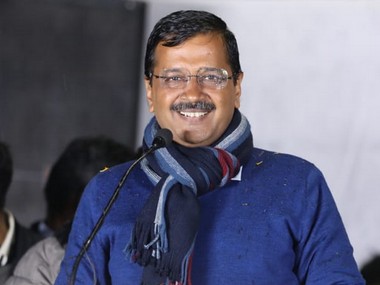From raising his fist in air, declaring himself as ‘an anarchist’ and sitting on a dharna at Lieutenant-Governor’s office to emerging as a doer whose steadfast focus is on providing the basic necessities to his electorate, the metamorphosis of Delhi chief minister Arvind Kejriwal in his five years in office is one of the most mature and fastest political course-corrections in recent times amidst dramatic turn of events. Activist-turned-politician Kejriwal began his tenure as an aggressive and confrontational chief minister, who left no opportunity to attack Prime Minister Narendra Modi for all apparent ills that came his way. He was a man at war with everyone — political opponents, the media and members of his own party. After all, his Aam Aadmi Party (AAP) had got a historical mandate of 67 out of 70 seats in 2015. Fast forward 2020. Delhi is witnessing the emergence of a new Kejriwal — a mellowed, matured and focussed politician whose electoral plank is his work and governance. And he is steering away from making any controversial statement during his election campaign. [caption id=“attachment_8002211” align=“alignleft” width=“380”] File image of Arvind Kejriwal. Twitter@ArvindKejriwal[/caption] Kejriwal, who began as an abrasive and over-confident leader, went on to pitch himself against Modi from Varanasi in the 2014 Lok Sabha election. But in five years, he has weaned himself away from the anti-Modi and anti-centre rhetoric, scaled-down his political ambitions and is focussing on Delhi alone. How, why and when did this political wisdom transform the activist chief minister into a focussed leader who has the gumption to do away with pure political gimmicks and seek re-election on the strength of non-glamorous issues such as education and Mohalla Clinics? The turnaround seems to have taken place in the past one-and-a-half years. By deciding not to take Modi head-on or fighting with the Centre on jurisdiction over Delhi Police or asking for statehood, Kejriwal not only avoided controversy but also got the time and energy to focus on the development work that his government has been able to do for the electorate. Most interesting has been Kejriwal’s pro-Centre approach — a complete U-turn since his early days as the Chief Minister of Delhi. Instead of staying splendidly neutral, he has conspicuously supported some of Modi government’s decisions. Throughout 2019, Kejriwal was prompt in his support to the Balakot airstrikes, the abrogation of Article 370 and Supreme Court’s verdict on Ram Janmabhoomi-Babri Masjid case while staying relatively silent on JNU fracas and the Citizenship Amendment Act, 2019. Kejriwal’s strategy is similar to the one applied for long by the incumbent Odisha chief minister Naveen Patnaik, who has gone on record saying that he would work with the Centre — no matter who is in power — as he wants to focus on work for the people of his state. This attitude has paid him good dividends by getting him funds from the Centre without creating many hurdles for development work in the state. Once known as a fierce member of the anti-Modi block that comprised Mamata Banerjee, N Chandrababu Naidu, Congress party and others, Kejriwal has made a tactical shift by avoiding being seen with the group that had aspired to emerge as a strong anti-BJP alliance. When asked if he was afraid of Modi in a recent media interview, the Delhi chief minister said, “Is he threatening me? No. He’s doing his job as country’s prime minister, and I as Delhi chief minister.” The fierce ‘anarchist’ today is not hesitant to call himself a staunch ‘Hanuman Bhakt’ (devotee of Hanuman); he has even chanted couplets from Hanuman Chalisa in public. The Delhi chief minister has indeed travelled a long distance in the five years — from being an ‘anarchist chief minister’ to an ‘everyman’s chief minister’ who’s now emotionally connecting with Delhi households as their ‘bada beta (eldest son)’, while seeking a repeat mandate in his recently held rallies.
Delhi chief minister Arvind Kejriwal began his tenure as an aggressive and confrontational chief minister, but has now mellowed and matured into a politician whose electoral plank is his work and governance
Advertisement
End of Article


)
)
)
)
)
)
)
)
)



